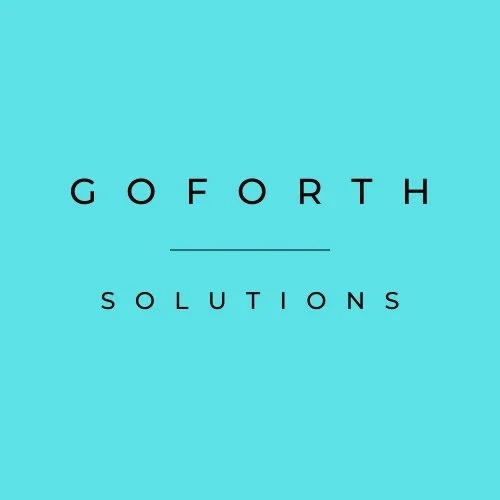Mon, Jan 27 - How to Acquire Free Satellite Imagery for Your Investigations
What: This GIJN webinar brings together leading experts to share practical advice and tips on navigating this often-overwhelming field. Attendees will learn the best platforms and techniques for obtaining free imagery, strategies for analyzing and processing the data, and ethical considerations when using it in investigative stories. Whether you’re looking to track deforestation, document urban expansion, or investigate geopolitical conflicts, this webinar will equip you with the skills to get started.
Who: Carl Churchill is a journalist at The Wall Street Journal; Yao Hua Law is an award-winning journalist from Malaysia; Laura Kurtzberg is a data visualization specialist, cartographer, and news applications developer with a particular interest in environmental stories; Manuela Andreoni, Chief Correspondent at Reuters based in Brazil.
When: 9 am
Where: Zoom
Cost: Free
Sponsor: Global Investigative Journalism Network
More Info
Tue, Jan 28 - Disinformation takeaways from the 2024 elections and starting points for future investigative reporting
What: This session with Factchequeado, a fact-checking organization filling the gap of reliable information in Spanish in the U.S., will highlight the team’s takeaways from investigating disinformation impacting Latino communities during the 2024 elections. The team will share starting points for your investigations and tools to help with your reporting. They’ll also provide examples of Factchequeado investigative reporting to help inspire you.
Who: Laura Zommer, Factchequeado CEO and Co-founder; Rafael Olavarría, Factchequeado Politics and Immigration Fact-checker.
When: 1 pm, Eastern
Where: Zoom
Cost: Free to members
Sponsor: Investigative Reporters & Editors
More Info
Tue, Jan 28 - Empowering the marketers, entrepreneurs, and creators in your classroom
What: We'll explore strategies for nurturing the next generation of business leaders, creative thinkers, and storytellers. Discover techniques and resources to support students in developing job-ready skills to launch their careers, as well as the marketing acumen and entrepreneurial spirit to find long-term success in a dynamic workforce landscape.
When: 12 pm, Eastern
Where: Zoom
Cost: Free
Sponsor: Pearson, Adobe, Meta
More Info
Tue, Jan 28 - Journalists are First Responders: Mental Health in Times of Crisis
What: Ways to stay attentive to your mental health during your day-to-day work cycle and especially during a crisis.
Who: Gretchen Schmelzer, ICF certified senior coach, licensed psychologist, co-founder of the Center for Trauma and Leadership, and the author of Journey Through Trauma.
When: 3 pm, Eastern
Where: Zoom
Cost: Free
Sponsor: Radio Television Digital News Association
More Info
Wed, Jan 29 - Science Essentials for Local Reporters
What: The key do’s, don’ts, and pitfalls to watch for when including science in your news reporting. Among the topics covered: Knowing whether and how science can enhance your story; Different kinds of studies and what each can—and cannot—reveal; Practical tips for identifying credible scientist-sources and interviewing them; and How to get the essentials from scientific reports, studies, and press releases.
Who: Freelance science reporter Elena Renken and Ph.D. neuroscientist Dr. Tori Espensen.
When: 2 pm, Eastern
Where: Zoom
Cost: Free
Sponsor: SciLine, a free service for journalists and scientists based at the American Association for the Advancement of Science (AAAS), the world’s largest multidisciplinary scientific society.
More Info
Wed, Jan 29 - The First Amendment in the 21st Century
What: This class is a First Amendment primer for students new to the topic and a great refresher for those whose work or volunteer service involves the Five Freedoms.
Who: Gregory V. Sullivan, Esq. is the President of Malloy & Sullivan, Lawyers Professional Corporation and teaches First Amendment Media Law at Suffolk University Law School in Boston.
When: 6:30 pm, Eastern
Where: Zoom
Cost: Free
Sponsor: Nackey S. Loeb School of Communications
More Info
Thu, Jan 30 – PR Trends 2025: Building Strategies That Drive Results
What: A discussion of key trends that are shaping the future of PR. Gain actionable insights into crafting a high-impact PR strategy for 2025, including leveraging AI with a human touch, bringing authenticity to media relations, and embracing data-driven approaches for effective communication. The discussion will also cover strategies for crisis management to build brand resilience and insights into using social media platforms to engage audiences, manage reputation, and address challenges.
Who: Hajira Amla, Nectar Marketing Communications; Michelle Garrett is a public relations consultant; Bill Byrne, founder of Remedy PR.
When: 11 am, Eastern
Where: Zoom
Cost: Free
Sponsor: Cision
More Info
Thu, Jan 30 - Source tracking fosters responsive engagement and improves your journalism
What: Learn from the American Press Institute’s experience supporting news organizations to track sources in order to build community trust, improve reporting strategies and attract new revenue.
Who: American Press Institute Director of Product Strategy Liz Worthington; Sherkiya Wedgeworth, Managing Editor of Accountability and Outreach for Colorado Public Radio; Leigh Munsil, Editor in Chief at San Antonio Report; and Blanca Méndez, Community Engagement Editor at San Antonio Report.
When: 12:30 pm, Eastern
Where: Zoom
Cost: Free
Sponsor: American Press Institute
More Info
Thu, Jan 30 - Report for America
What: This informative opportunity will cover the top newsrooms’ work culture, newsroom environment, salary, day-to-day routines, and much more. It will also provide a unique opportunity for members to network and ask direct questions to newsroom managers.
Who: Tim Lampley, Recruitment Manager, with Report for America, for a conversation about Report For America’s beat options, corps culture, and the application process.
When: 5:30 pm, Eastern
Where: Zoom
Cost: Free
Sponsor: National Association of Hispanic journalists
More Info
